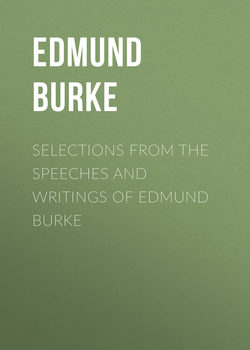Читать книгу Selections from the Speeches and Writings of Edmund Burke - Edmund Burke - Страница 95
SELECTIONS FROM THE SPEECHES AND WRITINGS OF EDMUND BURKE
LIBELLERS OF HUMAN NATURE
ОглавлениеI hope there are none of you corrupted with the doctrine taught by wicked men for the worst purposes, and received by the malignant credulity of envy and ignorance, which is, that the men who act upon the public stage are all alike; all equally corrupt; all influenced by no other views than the sordid lure of salary and pension. The thing I know by experience to be false. Never expecting to find perfection in men, and not looking for divine attributes in created beings, in my commerce with my contemporaries, I have found much human virtue. I have seen not a little public spirit; a real subordination of interest to duty; and a decent and regulated sensibility to honest fame and reputation. The age unquestionably produces (whether in a greater or less number than former times, I know not) daring profligates, and insidious hypocrites. What then? Am I not to avail myself of whatever good is to be found in the world, because of the mixture of evil that will always be in it? The smallness of the quantity in currency only heightens the value. They who raise suspicions on the good on account of the behaviour of ill men, are of the party of the latter. The common cant is no justification for taking this party. I have been deceived, say they, by Titius and Maevius; I have been the dupe of this pretender or of that mountebank; and I can trust appearances no longer. But my credulity and want of discernment cannot, as I conceive, amount to a fair presumption against any man's integrity. A conscientious person would rather doubt his own judgment, than condemn his species. He would say, I have observed without attention, or judged upon erroneous maxims; I trusted to profession, when I ought to have attended to conduct. Such a man will grow wise, not malignant, by his acquaintance with the world. But he that accuses all mankind of corruption, ought to remember that he is sure to convict only one. In truth I should much rather admit those, whom at any time I have disrelished the most, to be patterns of perfection, than seek a consolation to my own unworthiness, in a general communion of depravity with all about me.
